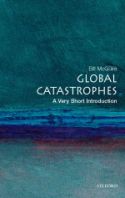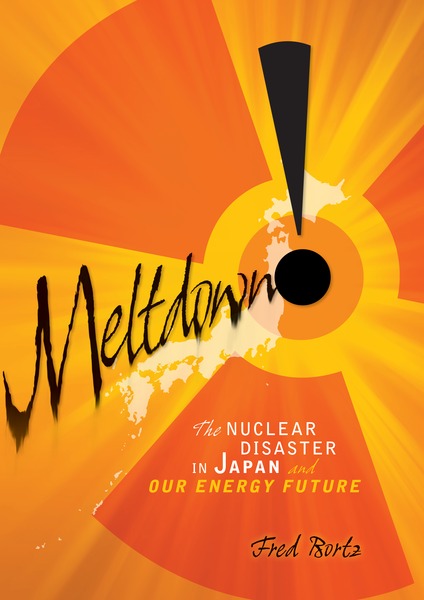Bortz, Fred. 2012.
Meltdown! The Nuclear Disaster in Japan and our Energy Future. New York: Lerner.
(Advance Review Copy provided by NetGalley)Last week, if you asked me to explain the processes and dangers inherent in the creation of nuclear energy, I would be hard-pressed to offer more than a rudimentary explanation. After reading
Meltdown! however, I marveled at how easily I grasped the entire process. Physicist and author,
Dr. Fred Bortz, has a distinct talent for distilling a complex subject into an easily understood concept.
In a compact, colorful book, complete with numerous illustrations and photographs, Fred Bortz recounts the Fukushima Daiichi disaster, sandwiched between solid scientific facts and a global view of the world's energy needs. The reader is left shocked by the massive destruction caused when a natural disaster causes a man-made one of nearly equal proportion. However, the purpose of
Meltdown! is not to shock the reader, but to make him think. Yes, this was a terrible disaster, but what are the alternatives? Can the world's energy needs be powered by solar? by wind? by coal? by oil? No, they can't - at least not now. The readers of
Meltdown! (recommended for ages 11-17) will be the decision makers of the world within a few short years.
Meltdown! will challenge them to see that the world's problems do not always have easy answers.
This seems to be the time of year that teachers are assigning many biography and nonfiction reading assignments. If this were on my shelves now, I would be recommending it highly, though sadly, many teachers will likely dismiss
Meltdown! as a book report choice because of the number of its pages, 64.
(This gives me a meltdown, as minimum page requirements give me "Minimum Rage.")This should be required reading, offering an easily understood lesson in nuclear energy, a factual account of the Fukushima Daiichi nuclear power plant disaster caused by the massive Japanese earthquake and tsunami of March 11, 2011, and extensive references and supplemental materials.
Teachers, check the
Fred Bortz website for great resources including news stories, videos, and classroom connections.
Due on shelves March 1, 2012 - in time for the one-year anniversary of the earthquake, tsunami and nuclear meltdown.

No one can escape the hundreds of articles and reports into global climate change: it is one of the most important issues on the political landscape in countries across the world. For this month’s Very Short Introduction column, I put a few questions to Bill McGuire, author of Global Catastrophe: A Very Short Introduction. McGuire is Director of the Benfield UCL Hazard Research Centre and has authored or edited over 400 books, papers and articles focusing on volcano instability and monitoring, volcanic hazards, natural hazards and environmental change, climate change and global geophysical events. He has worked on or visited volcanoes all over the world, including Mount Etna, Pinatubo and Ta’al in the Philippines, and Soufriere Hills in Montserrat.
OUP: Over the last few years we have seen an alarming increase in natural disasters, such as the Asian tsunami and subsequent earthquakes in the region. Can this rise be put down simply to climate change, or are there other possible explanations?
BILL McGUIRE: We have indeed been seeing a rise in the numbers of natural disasters, especially since 1990. This does not necessarily mean, however, that there have been more natural hazards. Climate change is already driving up the numbers of extreme weather events, such as storms and floods, and this is clearly having an impact. So far, however, we are not seeing any increase in the number and scale of geological hazards such as earthquakes, tsunamis and volcanic eruptions. The main reason for more natural disasters in recent years is that there are ever more people living in vulnerable regions, particularly in the coastal zone.
 OUP: At the same time as being faced with more and more reports about global warming, and the melting polar ice caps, we also hear about a possible new ice age. How can we have an ice age when the earth is getting warmer?
OUP: At the same time as being faced with more and more reports about global warming, and the melting polar ice caps, we also hear about a possible new ice age. How can we have an ice age when the earth is getting warmer?
McGUIRE: Current global warming is happening and is unequivocally due to human activities. There is no new ice age on the horizon, and in fact the next one - which would normally be expected within 10,000 years or so - may be postponed by our warming activities for up to half a million years.
If the gulf stream and associated Atlantic currents shut down in the next few decades, we could see a temporary cooling of the UK, Europe and the eastern US, but this would be far from an ice age, and warming would soon take over once more.
OUP: You say in your book that the human race “came within a hair’s breath of extinction” after a massive volcanic eruption 74,000 years ago. How do we know this, and what saved us then? Could the same thing happen now?
McGUIRE: Studies of mitochondrial DNA reveal evidence of a human population crash around about the time of the Toba super-eruption. This is known because we are so genetically similar that everyone alive today must be descended from a limited gene pool at about this time. It may be that just a few thousand humans survived the effects of the blast on the climate, possibly in tropical regions where the succeeding volcanic winter may have been less intense. This remains, however, highly speculative.
OUP: You suggest that the human race can try to preserve itself by moving into space, therefore potentially outliving Earth. Is the move into space really a realistic proposition?
McGUIRE: The only things hindering the colonisation of space are political will and money. Given time, I expect both obstacles to be overcome, leading to our race eventually reaching the stars. The big question is whether this would be good thing - bearing in mind how we have treated our own planet and those species we share it with? It may also be that the economic and social collapse that dangerous climate change looks increasingly likely to bring will set us back for generations.
OUP: Once people have read Global Catastrophes: A Very Short Introduction, which five books would you point them to next?
McGUIRE: Surviving Armageddon: Solutions for a Threatened Planet (also by me) suggests possible solutions to some of the potential catastrophes addressed in ‘global catastrophes’.
To find out how close we are to the oil running out, with consequent economic mayhem, I recommend The Last Oil Shock: A Survival Guide to the Imminent Extinction of Petroleum Man by David Strahan
The greatest threat to our race and our planet currently lies in contemporary climate change, so I would direct the reader to: Six Degrees by Mark Lynas and The Rough Guide to Climate Change.
Finally, I would (naturally) recommend my new climate change book Seven Years to Save the Planet due to be published in July (in the UK) by Weidenfeld & Nicholson.
ShareThis
Sometimes the need to create something wafts over me like the scent of mocha chip muffins puffing into calorie bombs as I stroll past a bakery. I don't even know I'm going to write something until I realize the smell of a new poem or a new story has led me straight to the counter and I'm ordering up dozens of words.
Other times, I'm more like Elmer Fudd with a gun. "I'm going get me some wabbit!" Last night, I had my double-barreled word gun out and I stayed up past midnight, blasting words onto the page. Don't worry, the new story's not violent; the need to create was.
You know the whole fight or flight instinct? Mine is heavy on the fight. I didn't always know this. In college, I took a fencing class, and learned that when faced with a pointy blade that, while not piercing, does leave bruises on your chest, I tend to react by: attack! attack! re-attack! (The instructor narrated the battle to point out moves and strategies to the watching class.) I won the girls' side of the mock tournament and faced the top boy. I nearly killed him. I don't think my brothers would be surprised.
Me, though, I'm amazed that I'm posting this. I'm known to most as a very mellow person. I love getting along. I hate conflict. I see other points of view with such ease that I could be a United Nations calendar girl. But I do not like myself when I get weepy or mopey when things don't go my way. So I challenge myself to a fight. Just me and some words. We go several rounds. The words usually win. But I feel better. And the best part? At the end, my opponent--my freshly created manuscript---hauls me off the floor, looks me in the eye and hands me back my self-respect.
P.S. It's a draft of a picture book. It needs work. It may never sell. But I sure had fun dueling with it. En guard, Monsieur Manuscript!






 OUP: At the same time as being faced with more and more reports about global warming, and the melting polar ice caps, we also hear about a possible new ice age. How can we have an ice age when the earth is getting warmer?
OUP: At the same time as being faced with more and more reports about global warming, and the melting polar ice caps, we also hear about a possible new ice age. How can we have an ice age when the earth is getting warmer?
How fabulous to have this right now...and thank you, too, for the link.
I will be looking at this one right away. My disaster book section could use so me fresh titles.
This is very timely for us here in Japan. I will look for it, even though I'd rather bury my head in the sand.
Love the cover. Sounds like a great addition for the Doucette Library (curriculum library at University of Calgary). Thanks for the recommendation.
Tammy
Apples with Many Seeds